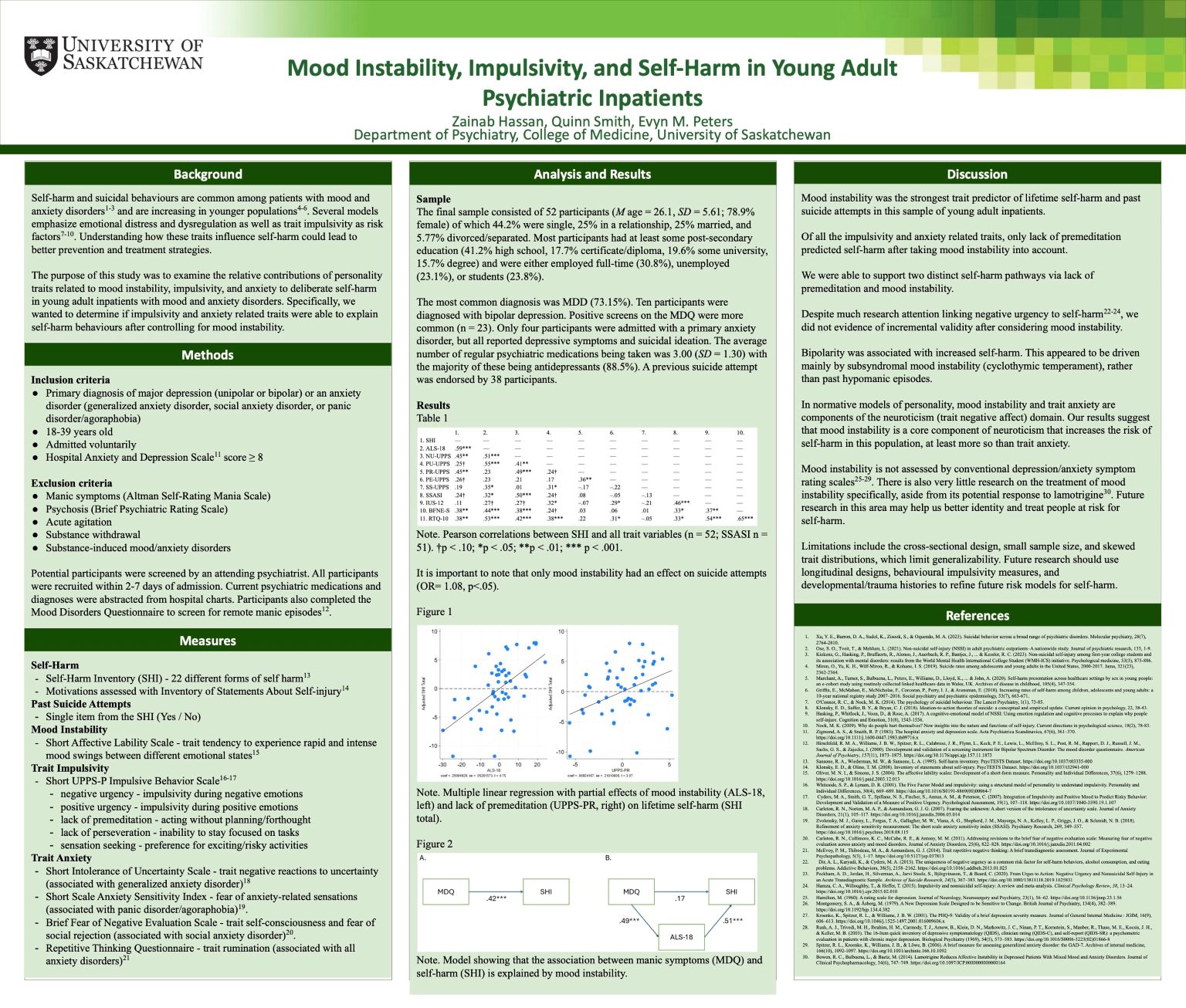
Mood Instability, Impulsivity, and Self-Harm in Young Adult Psychiatric Inpatients
Zainab Hassan
Background: Mood instability and impulsivity are transdiagnostic constructs associated with many psychiatric disorders and self-harm/suicide. There is a clear relationship between mood instability and impulsivity in patients with mood and anxiety disorders. This study examined the effects of these traits on self-harm.
Methods: Self-report questionnaires were completed by 52 young adult psychiatric inpatients. Mood instability and impulsivity were assessed with short versions of the Affective Lability and UPPS-P Impulsive Behaviour Scales. Anxiety-related traits were also measured, namely intolerance of uncertainty, anxiety sensitivity, fear of negative evaluation, and repetitive thinking. The Self-Harm Inventory was used to assess lifetime self harm. Sequential regression was used to identify traits with unique effects on self-harm.
Results: Mood instability was the strongest correlate of lifetime self-harm, and the only significant predictor of past suicide attempts. Of the impulsivity-related traits, only lack of premedication had a significant effect on self-harm that was independent of mood instability. Fear of negative evaluation and repetitive thinking were also associated with self-harm, but these effects were no longer significant after controlling for mood instability.
Conclusions: The results suggest unique effects on self-harm via mood instability and impulsivity. Future research on personality and self-harm should consider both traits simultaneously.
